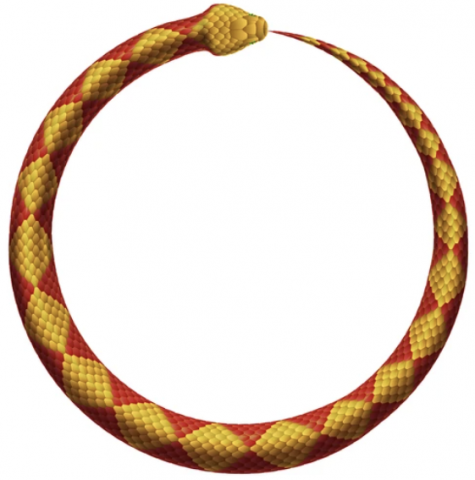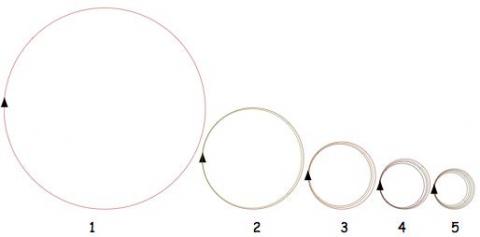Snake Coils
Problem
Colin the snake is 600cm long and is coiled into a circle, with his nose touching the tip of his tail.


Challenge
Next, Colin's head slides over his body again so that his nose is above the tip of his tail, making a triple circle. How much further has Colin's nose travelled along his body?
Now Colin wants to get from this point to a quadruple circle, making a coil of thickness four. How much further will his nose travel to make four circles?
How much further will his nose travel to make five circles?
Can you write each of these four distances as a fraction of his total length?
Final Challenge
When Colin's nose has slithered a total of 550cm along his body length, making smaller and smaller circles of his body, how many circles will there be?
Getting Started
This diagram for the five coils might help you to imagine what is happening.
Each set of circles should be the same size and on top of each other, but we could not show that in a diagram.
Student Solutions
We received a few solutions to this problem but most children made a mistake somewhere in their working. This seems to be a difficult problem to solve! Some children talked about using string or strips of paper to help them.
Mary from the UK sent in this table:

This is very clearly laid out, Mary. What do you think Mary means by 'length of each coil'?
What patterns are there in this table?
Teachers' Resources
Why do this problem?
This activity engages the pupils in both a spatial and numerical context. It gives them also the freedom to choose how they go about it - visualising in their head, using paper, string etc. that they have requested and/or making use of a spreadsheet. They can learn a lot from adopting one method and then realising that an alternative method would be better.
Possible approach
Presented as on the problem page.
Key questions
Very open questions, like "tell me about this ..."
What have you found out so far?
Possible extension
Consider the sizes of the circles as they get smaller and smaller.
